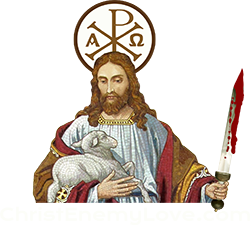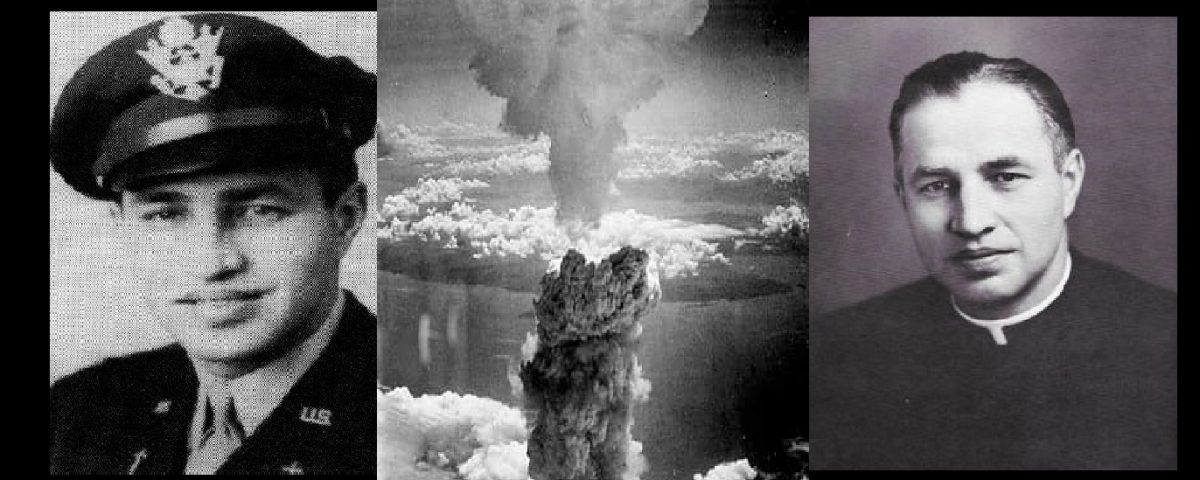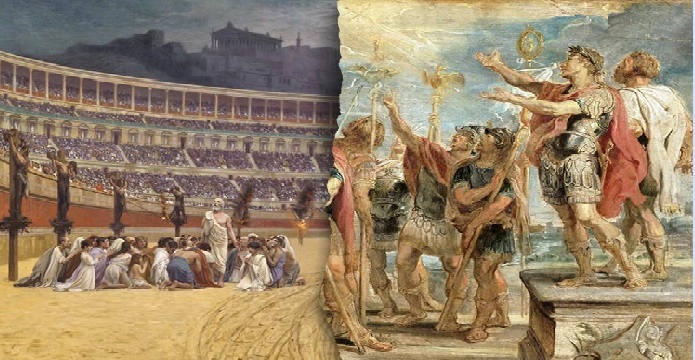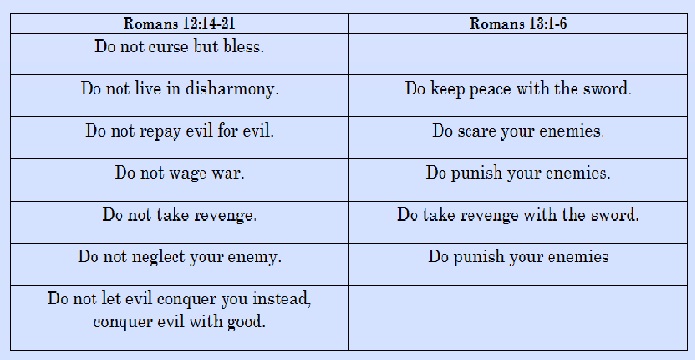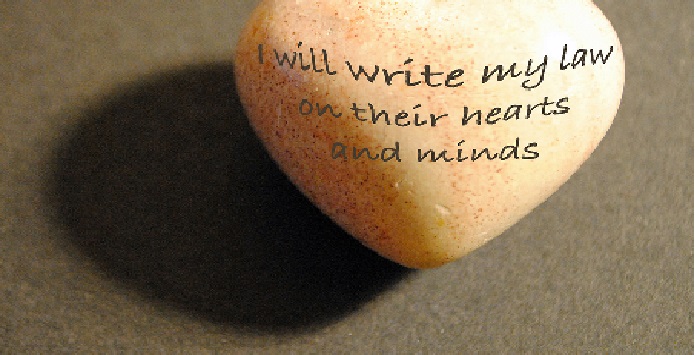From the book Peacemakers by Jim Wallis, p. 14-20.
In August, 1945, Fr. George Zabelka, a Catholic chaplain with the U.S. Army air force, was stationed on Tinian Island in the South Pacific. He served as priest and pastor for the airmen who dropped the atomic bombs on Hiroshima and Nagasaki. He was discharged in l946. During the next 20 years he gradually began to realize that what he had done and believed during the war was wrong, and that the only way he could be a Christian was to be a pacifist.
This is what he said in an interview:
“The destruction of civilians in war was always forbidden by the Church, and if a soldier came to me and asked if he could put a bullet through a child’s head, I would have told him absolutely not. That would be mortally sinful. But in 1945 Tinian Island was the largest airfield in the world. Three planes a minute could take off from it around the clock. Many of these planes went to Japan with the express purpose of killing not one child or one civilian but of slaughtering hundreds and thousands and tens of thousands of children and civilians—and I said nothing…”
“As a chaplain I often had to enter the world of the boys who were losing their minds because of something they did in war. I remember one young man who was engaged in the bombings of the cities of Japan. He was in the hospital on Tinian Island on the verge of a complete mental collapse. He told me that he had been on a low-level bombing mission, flying right down one of the main streets of the city, when straight ahead of him appeared a little boy, in the middle of the street, looking up at the plane in childlike wonder. The man knew that in a few seconds this child would be burned to death by napalm which had already been released. Yes, I knew civilians were being destroyed and knew it perhaps in a way others didn’t. Yet I never preached a single sermon against killing civilians to the men who were doing it…”
[Why not?]
“Because I was ‘brainwashed’! It never entered my mind to publically protest the consequences of these massive air raids. I was told it was necessary; told openly by the military and told implicitly by my Church’s leadership. To the best of my knowledge no American cardinals or bishops were opposing these mass air raids. Silence in such matters, especially by a public body like the American bishops, is a stamp of approval. The whole structure of the secular, religious, and military society told me clearly that it was all right to “let the Japs have it.” God was on the side of my country…I was ‘brainwashed’ not by force or torture but by my Church’s silence and whole-hearted cooperation in thousands of little ways with the country’s war machine…”
“Hiroshima and Nagasaki happened in and to a world and a Christian church that had asked for it—that had prepared the moral consciousness of humanity to do and to justify the unthinkable…”
“For the first three centuries, the three centuries closest to Christ, the church was a pacifist church. With Constantine the church accepted the pagan Roman ethic of a just war and slowly began to involve its membership in mass slaughter, first for the state and later for the faith. Catholics, Orthodox, and Protestants, whatever other differences they may have had on theological esoterica, all agreed that Jesus’ clear and unambiguous teaching on the rejection of violence and on love of enemies was not to be taken seriously…”
“One would have thought that I, as a Catholic priest, would have spoken out against the atomic bombing of nuns. (Three orders of Catholic sisters were destroyed in Nagasaki that day.) One would have thought that I would have suggested that as a minimal standard of Catholic morality, Catholics shouldn’t bomb Catholic children. I didn’t. I, like the Catholic pilot of the Nagasaki plane, ‘The Great Artiste,’ was heir to a Christianity that had for seventeen hundred years engaged in revenge, murder, torture, the pursuit of power, and prerogative violence, all in the name of our Lord…”
“The mainline Christian churches still teach something that Christ never taught or even hinted at, namely the just war theory, a theory that to me has been completely discredited theologically, historically, and psychologically. So as I see it, until the various churches within Christianity repent and begin to proclaim by word and deed what Jesus proclaimed in relation to violence and enemies, there is no hope for anything other than ever-escalating violence and destruction…”
“Communion with Christ cannot be established on disobedience to his clearest teachings…Christians the world over should be taught that Christ’s teaching to love their enemies is not optional. I’ve been in many parishes in my life, and I have found none where the congregation explicitly is called upon regularly to pray for its enemies. I think this is essential…One thing I am sure of is that our Lord would be very happy if his church were again unequivocally teaching what he unequivocally taught on the subject of violence.”
